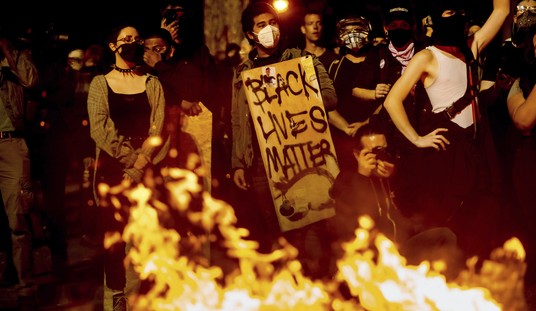Democrats are acting horrified that President Donald Trump’s legal team is still challenging the Nov. 3 election outcome three weeks after the day, while many Trump supporters note that Democrat Al Gore kept his legal challenge alive for 36 days.
The natural tendency is to compare the post-election conundrum of 2020 with 2000, primarily because it’s a point of reference that most voters have at least some memory of. But the better comparison would be the 1876 election between Republican Rutherford B. Hayes, the Ohio governor, and Democrat Samuel Tilden, the New York governor, as described in my book “Tainted by Suspicion: The Secret Deals and Electoral Chaos of Disputed Presidential Elections” about four previous overtime elections not all that different from the current post-election fiasco.
The chief similarity is that 2020—like 1876—involves contesting the outcome in multiple states. Whereas the post-2000 election fight was only about Florida.
The post-election of 2020 and 1876 elections both involved Democratic-supporting mobs gathered in the streets, often threatening violence. Allegations of voter fraud flew. And, in both elections, the media was front and center for its impact. In both elections, both candidates declared themselves to be the real winner, insisting their party was the one defending democracy.
One similarity has a twist. In both elections, many Americans went to bed believing one candidate had clearly won only to find out the next day the election was up in the air. The difference is that in 1876, Tilden and the Democrats believed they had won on election night. In 2020, Trump and Republicans felt confident around midnight.
Recommended
For 2020, the states of Pennsylvania, Georgia, Arizona, Michigan, Wisconsin, and Nevada have been litigated. In 1876, the dispute was about who won in Florida, South Carolina, and Louisiana. Democrats used violence, lynching, and riots to scare blacks and white Republicans away from voting, knowing it was possible for Republicans to carry some Southern states. Republicans also accused Democrats in those states of frequently voting twice or more, cranking up the numbers for Tilden.
Incidentally, in 1876, there was a dispute about one of Oregon’s electoral votes, but it barely made a difference. In short, Hayes carried Oregon. But, to stir mischief, Oregon’s Democratic Gov. La Fayette Grover named one elector for Tilden after a Republican elector was disqualified. He used a DNC legal opinion as a rationale.
The Constitution has an antidote for when no candidate gets a majority of the votes in the Electoral College. The House of Representatives is supposed to decide, with each state delegation getting one vote, which happened in 1800 and 1824. Disputed elections since that time—1876, 2000 and now 2020—have involved entirely different questions, the integrity of the vote count and who really won the states in question.
Yes, the 2020 race is working its way through the courts similar to 2000, while the 1876 election was ultimately decided by Congress. This simply reflects a more litigious era today rather than any democratic or constitutional norm. Further, the judiciary wasn’t divorced from the Hayes-Tilden dispute. Five members of the Supreme Court were on the 15-member bipartisan commission that made a recommendation to Congress.
The multi-state mess of 1876 occurred when the states in question presented competing sets of electors. There has certainly been chatter about state legislatures getting involved and appointing electors this year. Yet, just as in 2020 there may always be questions abound on how Trump’s lead could so quickly evaporate in specific states, that same was somewhat true in 1876.
On Nov. 7, 1876, Tilden won the national popular vote 4,288,546 to 4,034,311 votes for Hayes, and 184 to 165 in the Electoral College.
The Associated Press – as objective as news could be in those days – was calling Florida and Oregon for Hayes. And much of media—namely the big newspapers—were calling the race for Tilden.
So, going in, it seemed Hayes had a much steeper hill to climb. But Republicans in 1876 were ready to fight harder, largely under the leadership of RNC Chairman Zachary Chandler who seemed audacious in telling the press, “Hayes has 185 electoral votes and is elected.”
He got some backup from The New York Times—the outlet today that often sets the media narrative actually bucked it. Times Managing Editor John C. Reid, a former prisoner of war in a Confederate prison, loathed Democrats as the party of rebellion. While other major dailies called Tilden the winner, a New York Times early edition on Nov. 8 read “The Results Still Uncertain.” The second edition projected Hayes had 181 electoral votes, and Florida was too close to call.
The bipartisan commission awarded the four states' 20 disputed electoral votes to Hayes, but Democrats, who controlled the House, weren’t about to rubber stamp the decision. The Republican-controlled Senate embraced the decision. Gridlock ensued.
On another media front, Henry Watterson, publisher of the Louisville Courier-Journal and a Democratic congressman from Kentucky, on Jan. 8, 1876, called for “the presence of at least 10,000 unarmed Kentuckians” to march on Washington to ensure Tilden was elected. Not to be outdone, Joseph Pulitzer, still building a vast newspaper empire, went further, calling for 100,000 people “fully armed and ready for business” to ensure that Tilden became president.
It wasn’t Antifa yet, but angry Democrat mobs across the country chanted, “Tilden or blood,” and in a dozen states, club-wielding “Tilden Minutemen” had formed threatening to march into Washington to take the White House for their candidate.
By this point, a Hayes had the upper hand, but there was concern Congress would not certify the matter before inauguration day, March 4. Eventually, southern Democrats cut a deal with Republicans—known as the Compromise of 1877—to end Reconstruction in the South and provide more federal funding to the region.
Hayes has often been crucified in history for ending Reconstruction in the South and allowing generations of racist laws to reign. But had the election gone the other way, Tilden would have likely given southern Democrats carte blanche. Reconstruction was already unpopular in the North. So, this might have only sped up the inevitable. This unfortunate compromise might have been the only answer.
Biden’s election seems highly probable at this point, but that doesn’t mean the process of obtaining as close to an accurate legal vote count as possible shouldn’t move forward. Unlike the 1876 election that raged until the eve of the March inauguration, this current challenge will likely wrap up before electors are certified on Dec. 8 and before the Electoral College meets on Dec. 14, and well before the Jan. 20, 2021 inauguration. So for history’s verdict, there should be no rush.
























Join the conversation as a VIP Member